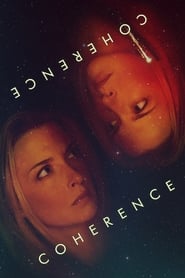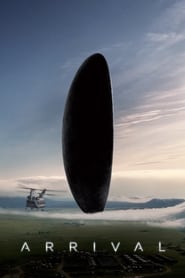|
|
|
Did you know the movie was shot in just 5 night? And the actors never got a complete script but just a small paragraph that only they would be aware of!
Talk about improvisation. #behindthescenes #improvisation
Talk about improvisation. #behindthescenes #improvisation
UNDO
0
|
|
|
|
|
Taking into account the fact that this movie was shot completely within the director's home and the street in front, in the most minimal of budgets, an incredible mind-bending film by any standards.
Though some things do come out as too goofy. They find all their answers in a basic Science textbook? Really?
I didn't pass class 12 for this!
Though some things do come out as too goofy. They find all their answers in a basic Science textbook? Really?
I didn't pass class 12 for this!
|
|
|
Will leave you tear-stained.
"To the glory of God"
Directed by acclaimed Iranian filmmaker Majid Majidi (“Children of Heaven”), the film is nothing short of visual poetry. The movie revolves around a blind boy, so attuned with nature that he counts the sounds of birds and reads the leaves of plants. Set in the picturesque rural town on Tehran, Majidi weaves through various themes in the short 90 minutes duration of one of his masterpieces. The movie opens with “In the name of God”, a line so simple yet it prepares you for what you will explore in the film itself. Majidi enables the viewers to engage their senses and treat every scene in the film as a personal interpretation.
Mohammed is the blind boy studying in the city, his father reluctantly takes him back home during the summer vacation. Here we see him getting showered with love from his grandmother and sisters. But, his father Hashem sees him as a burden due to his blindness, and wishes to get rid of him so he can marry a rich woman who is ignorant about the existence of his blind son. Despite his son being a bright student, Hashem cuts his education short in an effort to conceal his existence. Unaware of his father’s intention we see Mohammed, frolicking in the field with his granny and attending the local school with his sisters, until his father decides to send him away to be a far-away blind carpenter’s apprentice.
The movie beautifully highlights the despair of the father, on losing his wife and having a blind boy who is seen as a bad omen in his society, he questions his god and curses his fate. On the other hand we see the love the grandmother has for the blind boy, she does not mull away in despair rather she chooses to trust her god’s will. One truly must have a heart of ice to not break down when Mohammed finally declares, “Nobody loves me because I’m blind.”
“The Colour of Paradise” will make you question your life, even with your sight intact. In Mohammed we see a boy who sees so much more than what we ever manage to see, and how even then he is reminded of his disability due to his inability to see god.
The film closes with a scene so simple yet so profound that the starting line of “In the name of God” will hold a whole new meaning for you. The cinematography by Mohammad Davudi, weaves magic and creates a personal space for the audience to experience the nature up close and personal.
Majidi has also brought the film alive by using a mellifluous soundtrack and adding subtle natural sounds – pecking woodpeckers, chirping cicadas, a football being kicked to add a realistic touch. The film proves to be a classic and a definite must watch for people who see more than what meets the eye.
And in the end, you’re bound to question: Who, in this world, are actually blind?
Directed by acclaimed Iranian filmmaker Majid Majidi (“Children of Heaven”), the film is nothing short of visual poetry. The movie revolves around a blind boy, so attuned with nature that he counts the sounds of birds and reads the leaves of plants. Set in the picturesque rural town on Tehran, Majidi weaves through various themes in the short 90 minutes duration of one of his masterpieces. The movie opens with “In the name of God”, a line so simple yet it prepares you for what you will explore in the film itself. Majidi enables the viewers to engage their senses and treat every scene in the film as a personal interpretation.
Mohammed is the blind boy studying in the city, his father reluctantly takes him back home during the summer vacation. Here we see him getting showered with love from his grandmother and sisters. But, his father Hashem sees him as a burden due to his blindness, and wishes to get rid of him so he can marry a rich woman who is ignorant about the existence of his blind son. Despite his son being a bright student, Hashem cuts his education short in an effort to conceal his existence. Unaware of his father’s intention we see Mohammed, frolicking in the field with his granny and attending the local school with his sisters, until his father decides to send him away to be a far-away blind carpenter’s apprentice.
The movie beautifully highlights the despair of the father, on losing his wife and having a blind boy who is seen as a bad omen in his society, he questions his god and curses his fate. On the other hand we see the love the grandmother has for the blind boy, she does not mull away in despair rather she chooses to trust her god’s will. One truly must have a heart of ice to not break down when Mohammed finally declares, “Nobody loves me because I’m blind.”
“The Colour of Paradise” will make you question your life, even with your sight intact. In Mohammed we see a boy who sees so much more than what we ever manage to see, and how even then he is reminded of his disability due to his inability to see god.
The film closes with a scene so simple yet so profound that the starting line of “In the name of God” will hold a whole new meaning for you. The cinematography by Mohammad Davudi, weaves magic and creates a personal space for the audience to experience the nature up close and personal.
Majidi has also brought the film alive by using a mellifluous soundtrack and adding subtle natural sounds – pecking woodpeckers, chirping cicadas, a football being kicked to add a realistic touch. The film proves to be a classic and a definite must watch for people who see more than what meets the eye.
And in the end, you’re bound to question: Who, in this world, are actually blind?
55 views
|
|
|
A Villeneuve Classic!
If you’re a Sci-Fi loyalist, Arrival is your movie.
If you’re scared of complex representations of already complex themes, Arrival still is your movie!
Denis Villeneuve’s modern masterpiece is precisely calculated and highly ambitious, for its objective exceeds telling a story.
Mysterious spacecraft touchdowns across the globe perplex humans as they struggle to solve the dichotomy of the spacecrafts’ consequential intentions. Linguist Louise Banks (Amy Adams) joins the US Army team to decipher the ‘language’ of two alien ‘heptapods’ in one such spacecraft. But, can it be called language?
As mankind teeters between violence and toleration on the verge of global war, Banks and the team race against time for answers. But, do they?
To find them, does she take the chance that could threaten her life, and quite possibly humanity?
How is time actually related to metaphysics and structuralism? What do the aliens actually want inside the Earth?
Plot: Villeneuve approaches these questions with a prevailing ‘reality’, a word seemingly paradoxical to the genre yet adding substantial uniqueness and mystery to an excellent plot.
Performances: Amy Adams delivers impeccably. Her range of emotions throughout Banks’ personal losses, gradual loss of time sense and unsettling daydreams is phenomenal. The others perform at par too.
Background Score: Johann Johannsson composes an extremely appropriate and complementing score.
Cinematography:Exquisitely breathtaking work by Bradford Young. Further adjectives can be realised by one’s own self, post watching.
If you’re scared of complex representations of already complex themes, Arrival still is your movie!
Denis Villeneuve’s modern masterpiece is precisely calculated and highly ambitious, for its objective exceeds telling a story.
Mysterious spacecraft touchdowns across the globe perplex humans as they struggle to solve the dichotomy of the spacecrafts’ consequential intentions. Linguist Louise Banks (Amy Adams) joins the US Army team to decipher the ‘language’ of two alien ‘heptapods’ in one such spacecraft. But, can it be called language?
As mankind teeters between violence and toleration on the verge of global war, Banks and the team race against time for answers. But, do they?
To find them, does she take the chance that could threaten her life, and quite possibly humanity?
How is time actually related to metaphysics and structuralism? What do the aliens actually want inside the Earth?
Plot: Villeneuve approaches these questions with a prevailing ‘reality’, a word seemingly paradoxical to the genre yet adding substantial uniqueness and mystery to an excellent plot.
Performances: Amy Adams delivers impeccably. Her range of emotions throughout Banks’ personal losses, gradual loss of time sense and unsettling daydreams is phenomenal. The others perform at par too.
Background Score: Johann Johannsson composes an extremely appropriate and complementing score.
Cinematography:Exquisitely breathtaking work by Bradford Young. Further adjectives can be realised by one’s own self, post watching.
86 views
|
|
|
Must Watch
“Even listening to the same story, people imagine different things,” a character warns us, so deep into the movie that the line plays not like a revelation, but another confirmation that Park Chan Woo is but a virtuoso in this genre.
The Handmaiden is a movie that unravels within itself. Told in three parts with the same story being seen from three different perspectives, and each one adding a new layer to the already rich fabric, the movie is an emporium of visual delights, intricate plots and twisted characters.
We have the rich heiress - for whom beauty is a virtue, we have the evil uncle who uses her to fulfill his wishes, a handsome Count who is actually a hoodlum in costume and instead of the Prince on a white horse - we have the lady's Handmaiden - initially also a part of the Count's plan.
The story begins in an orphanage, from wherein the Count hires a girl to serve as a Handmaiden to Lady Hideko (Kim Min Hee) whom he wishes to marry and then confine in a madhouse in a bid to inherit her fortune. But Lady Hideko lives under the careful eye of her older Uncle who has other plans for her future.
Based on Sarah Waters 2002 novel, Fingersmith, the movie has a decidedly happier ending and chops off a major portion of the plot for the sake of Mr. Park's compulsive attention to details. Everything inside the manor and outside is made to enchant and in the rare moment that you do manage to look away from the screen, you can only marvel at what a masterpiece Park has created. The camera lingers on the minutest of details (the rustling of silk, or a slow parade down Kim MinHee's back) and dialogues or recited scraps of letters or fiction become de facto narration laid over a cascade of images, brilliantly composed for a very wide frame by Chung Chung-hoon, and backed by Cho Young-wuk’s hypnotically repetitive yet rapturously melodramatic score, which rises to operatic heights when the characters are experiencing misery, ecstasy or fear (cue, the portion where they run to freedom).
The movie is about storytelling in it most's vulnerable form - the cinematography is outstanding with wide angle views of fields that signify freedom and closed views of the quarters in which the Handmaiden lives. The soundtrack, especially the song at the end "The Sound of You Coming" and "My Tamako, My Sookee" are bound to leave a lasting impression.
Nearly as powerful, though far subtler, are the cross-cut sequences that feel like self-contained short stories of their own.
The story, like the movie itself is disturbing beautiful and is bound to haunt you for days.
The Handmaiden is a movie that unravels within itself. Told in three parts with the same story being seen from three different perspectives, and each one adding a new layer to the already rich fabric, the movie is an emporium of visual delights, intricate plots and twisted characters.
We have the rich heiress - for whom beauty is a virtue, we have the evil uncle who uses her to fulfill his wishes, a handsome Count who is actually a hoodlum in costume and instead of the Prince on a white horse - we have the lady's Handmaiden - initially also a part of the Count's plan.
The story begins in an orphanage, from wherein the Count hires a girl to serve as a Handmaiden to Lady Hideko (Kim Min Hee) whom he wishes to marry and then confine in a madhouse in a bid to inherit her fortune. But Lady Hideko lives under the careful eye of her older Uncle who has other plans for her future.
Based on Sarah Waters 2002 novel, Fingersmith, the movie has a decidedly happier ending and chops off a major portion of the plot for the sake of Mr. Park's compulsive attention to details. Everything inside the manor and outside is made to enchant and in the rare moment that you do manage to look away from the screen, you can only marvel at what a masterpiece Park has created. The camera lingers on the minutest of details (the rustling of silk, or a slow parade down Kim MinHee's back) and dialogues or recited scraps of letters or fiction become de facto narration laid over a cascade of images, brilliantly composed for a very wide frame by Chung Chung-hoon, and backed by Cho Young-wuk’s hypnotically repetitive yet rapturously melodramatic score, which rises to operatic heights when the characters are experiencing misery, ecstasy or fear (cue, the portion where they run to freedom).
The movie is about storytelling in it most's vulnerable form - the cinematography is outstanding with wide angle views of fields that signify freedom and closed views of the quarters in which the Handmaiden lives. The soundtrack, especially the song at the end "The Sound of You Coming" and "My Tamako, My Sookee" are bound to leave a lasting impression.
Nearly as powerful, though far subtler, are the cross-cut sequences that feel like self-contained short stories of their own.
The story, like the movie itself is disturbing beautiful and is bound to haunt you for days.
55 views
116923116922116920116918116917




